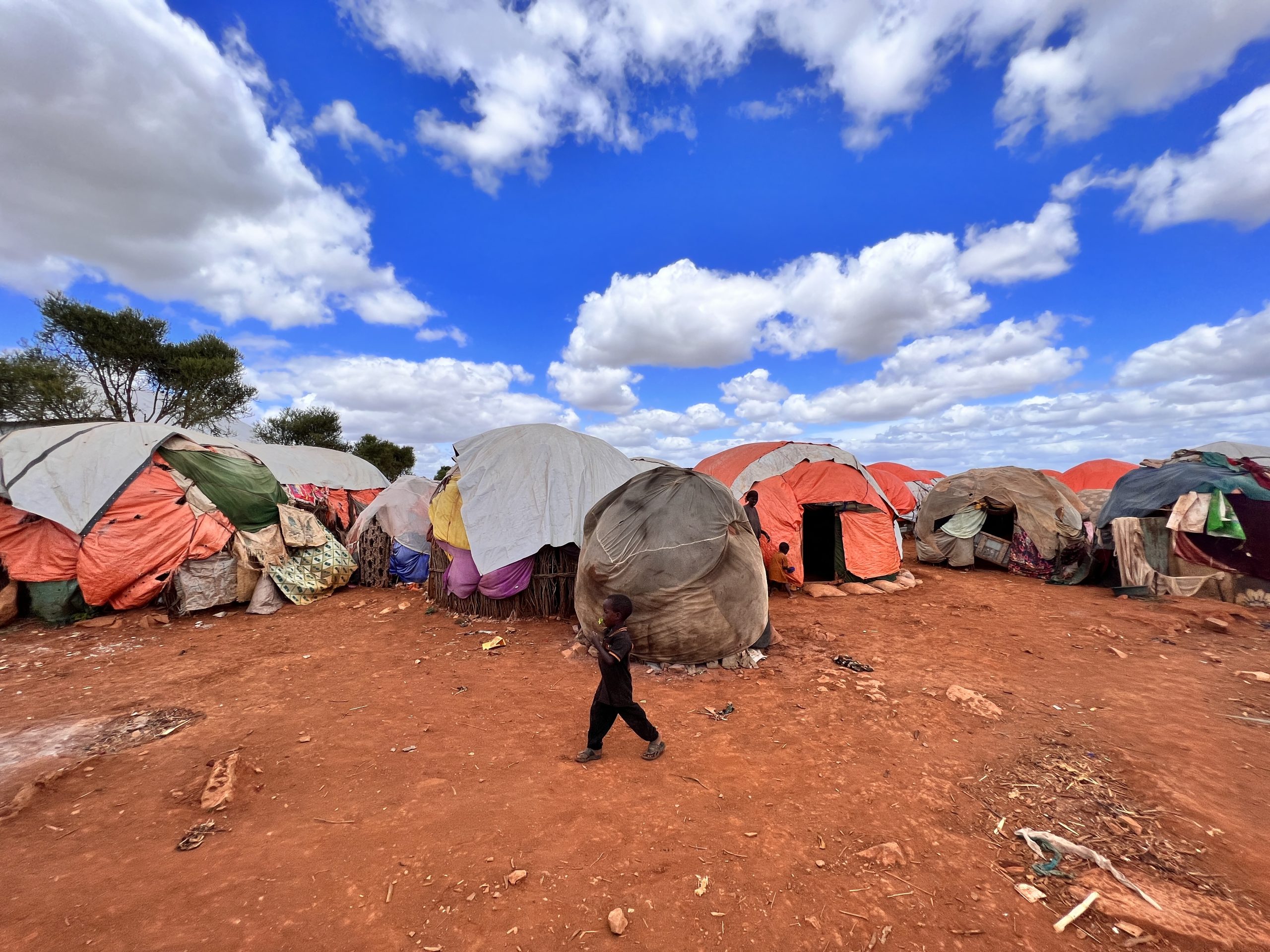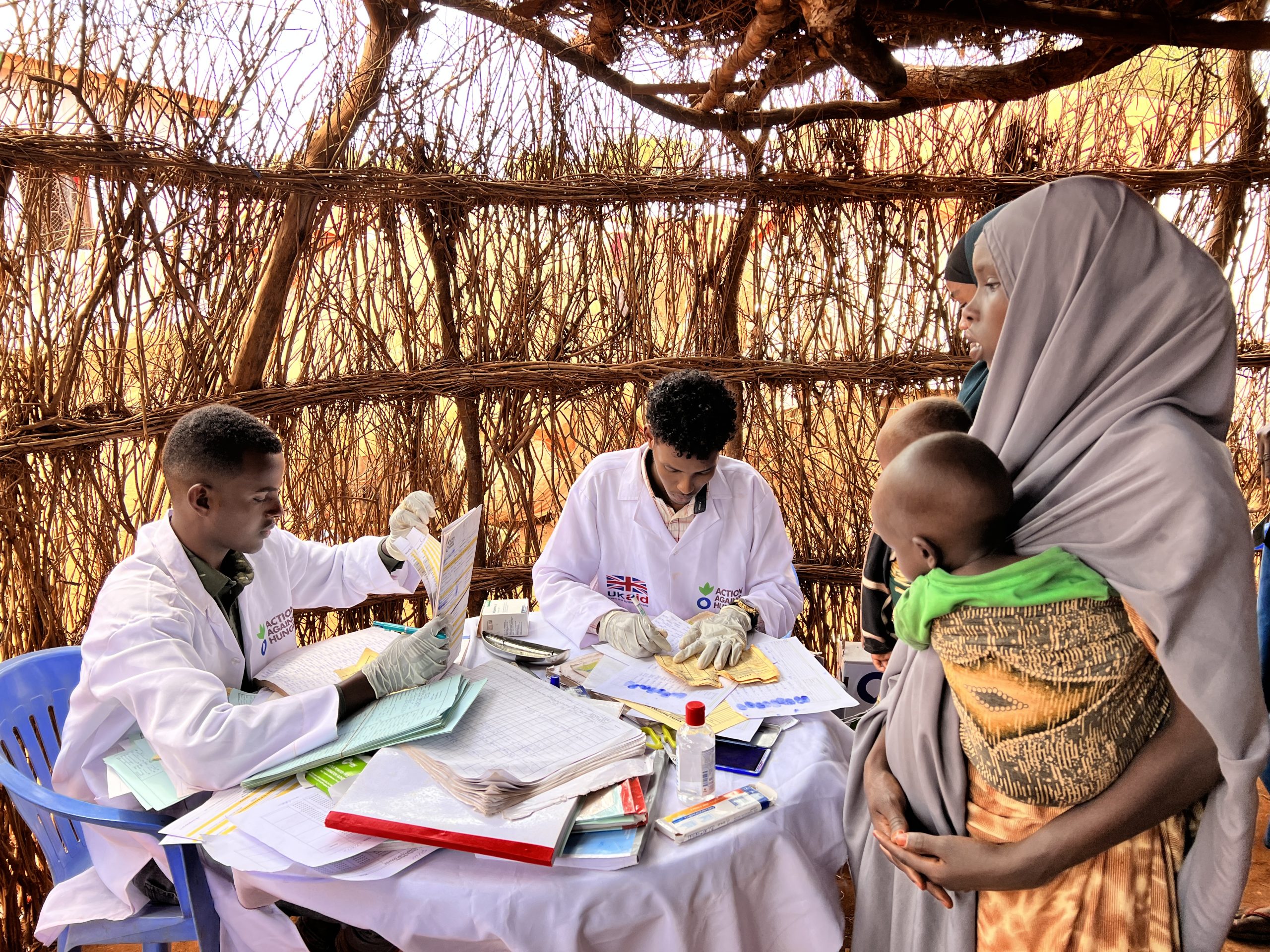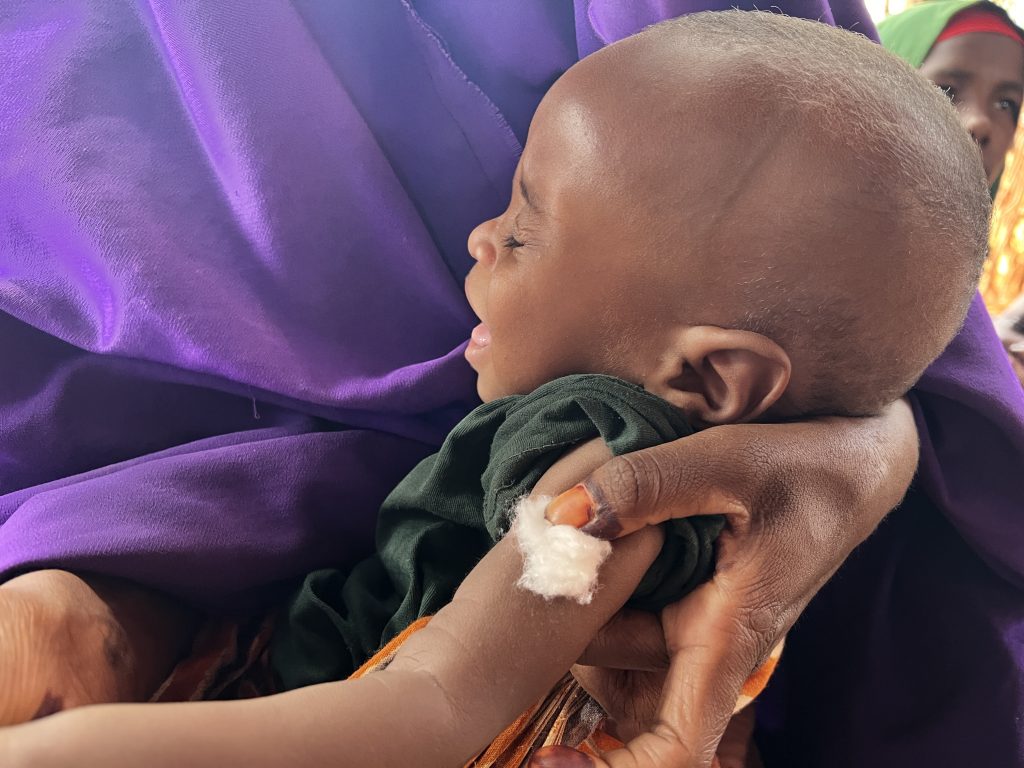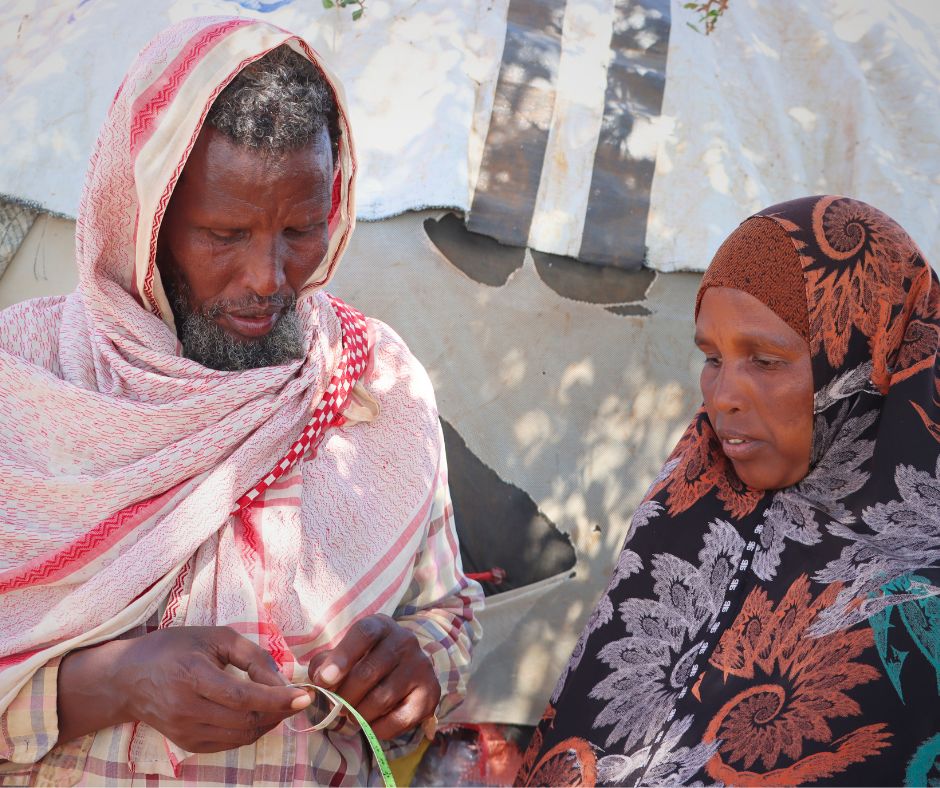Yarey Adan Ali, a 30-year-old mother living in the Tuugsoy displacement camp, is happy her 9-month-old child, Mohamed Muqtar, received the final vaccine dose during a mobile health outreach in Baidoa.
Since arriving at the camp in early 2021 after fleeing the devastating drought, Yarey has supported her children’s health and growth. Four of her children have now been fully vaccinated at the Baidoa mobile clinics, a trend she is determined to continue.
“I have seen that vaccinated children are healthier than those who haven’t been protected,” Yarey explains. “Now that I understand the benefits, I make sure my little ones get their shots by the time they’re 9 months old.”
Yarey’s husband works odd jobs in the town, bringing home a meager income to cover food and other essentials. However, the recent floods during the Deyr (autumn) season have washed away their modest home and supplies, leaving the family even more vulnerable.
According to the latest report from the UN Office for the Coordination of Humanitarian Affairs (OCHA), the heavy Gu rains (April to June) and resulting flash floods have spread to more areas of Somalia. As of May 8th, the floods have affected at least 203,438 people, including around 37,120 who have been displaced or relocated, and have tragically claimed the lives of nine people.
Baidoa, as a town that hosts more than 500 internally displaced camps, has seen the impact more severe. Movement of people and essential supplies have been affected, pinching poor households further. It took Yarey’s relative 32 days for the water to dry to reach Qansax Dheere village, where the family originated from.

In response to the devastating impacts of the floods, the British Embassy in Mogadishu allocated a funding of 1 million British pounds to the Caafimaad Plus consortium to scale up emergency relief efforts in the affected areas of Somalia. This funding builds on the embassy’s previous £4 million response to last autumn’s El Niño emergency, ensuring continuity of critical assistance amid the Gu’ rains and resulting supply chain disruptions that have driven up food prices, further straining vulnerable communities.
Due to the severe flooding, Yarey’s husband was forced to stay away from work, disrupting the family’s access to food. As a result, Yarey’s son Madey became weak and malnourished. However, the timely deployment of mobile teams by Action Against Hunger intervened to provide Madey with nutritious paste, while also ensuring her youngest child received their vital vaccination.
Two mobile teams operate in Baidoa, going to a new area/camp every day, bringing services closer to affected families. “They are making it easier for us. We don’t have to leave our children to go and seek medical assistance,” Yarey noted.

These teams consist of a protection counselor, Pregnant and Lactating Women (PLW) nurse, nutrition, and health sections that attend to the needs of affected communities. The team refers cases that need additional care to specialized facilities. They perform nutrition screening for children under five and treat diseases like malaria, diarrhea, pneumonia, and common illnesses.
Vaccination coverage in Somalia is one of the lowest in the world, leaving many children unprotected, especially in remote and marginalized communities. According to UNICEF Approximately 1.5 million children in Somalia have never received any vaccinations, classifying them as “zero-dose” children. It is crucial to prioritize efforts to reach and immunize these highly vulnerable young individuals.
Factors include limited access to healthcare, low awareness of vaccination importance, and disruptions from conflict, displacement, and climate-induced disasters like floods, which impede vaccine delivery.
While Somalia’s health system is still improving, these emergency funds from donors like the UK Embassy in Mogadishu mean a lifeline for crisis-affected families like Yarey and many others.








